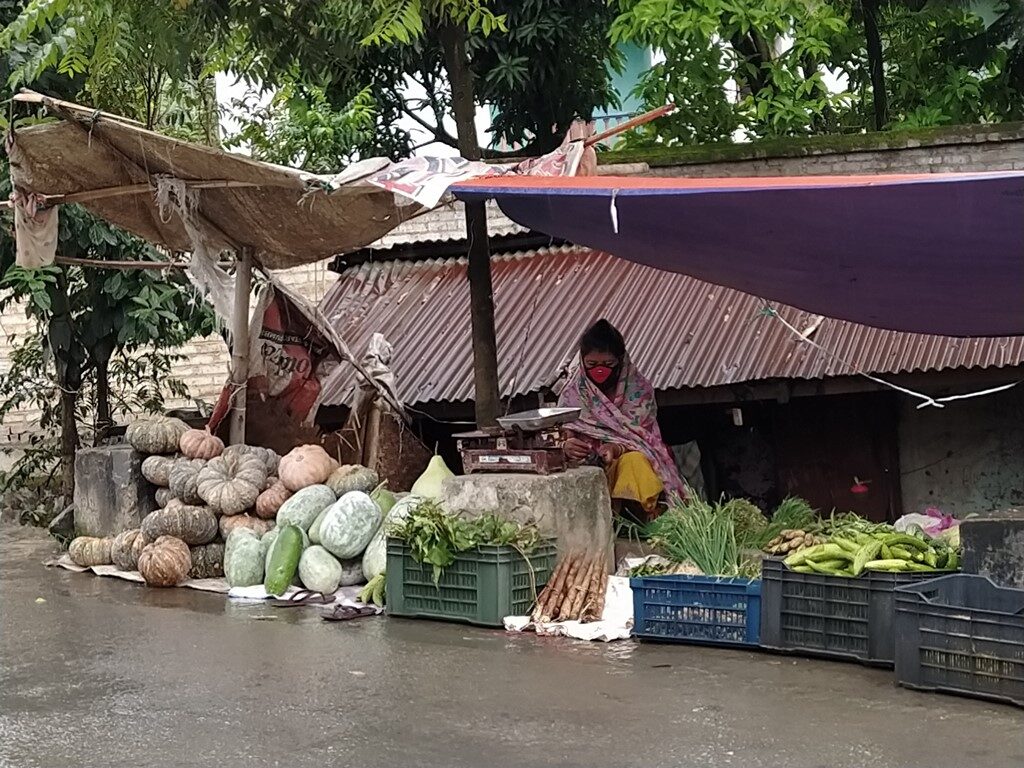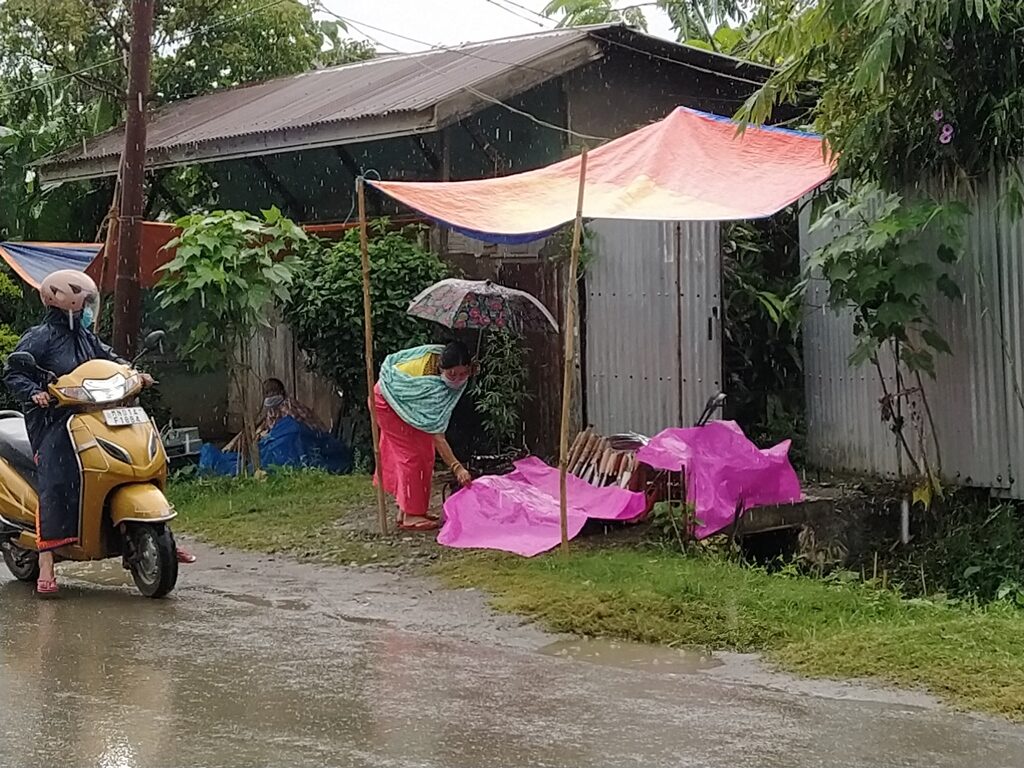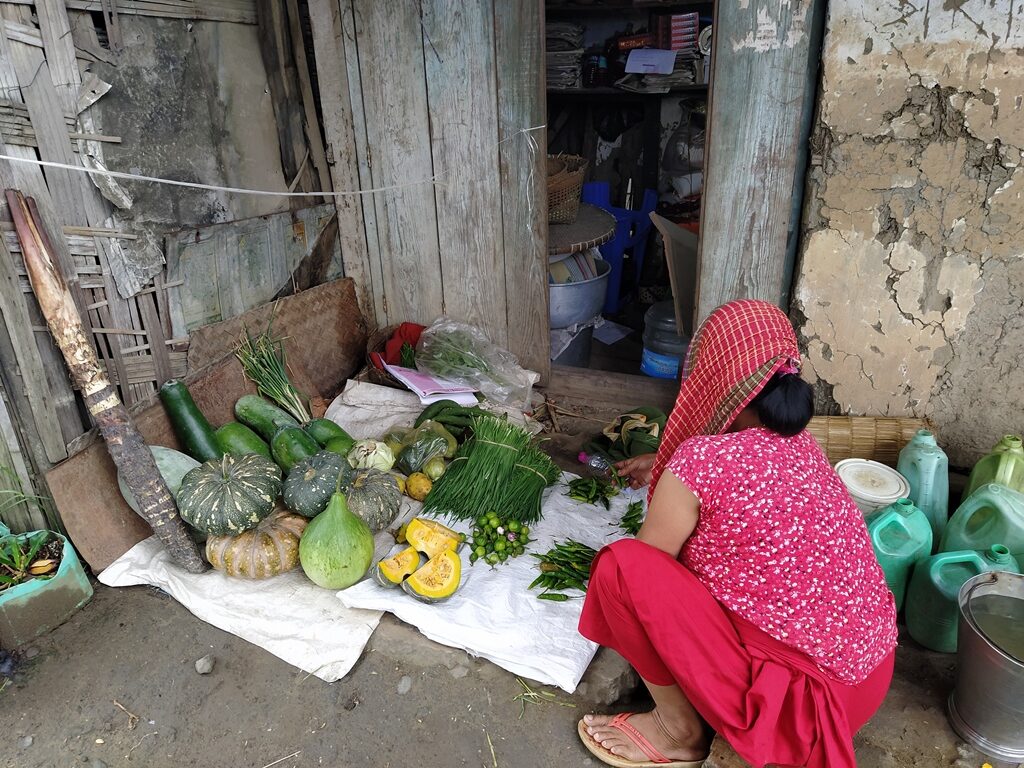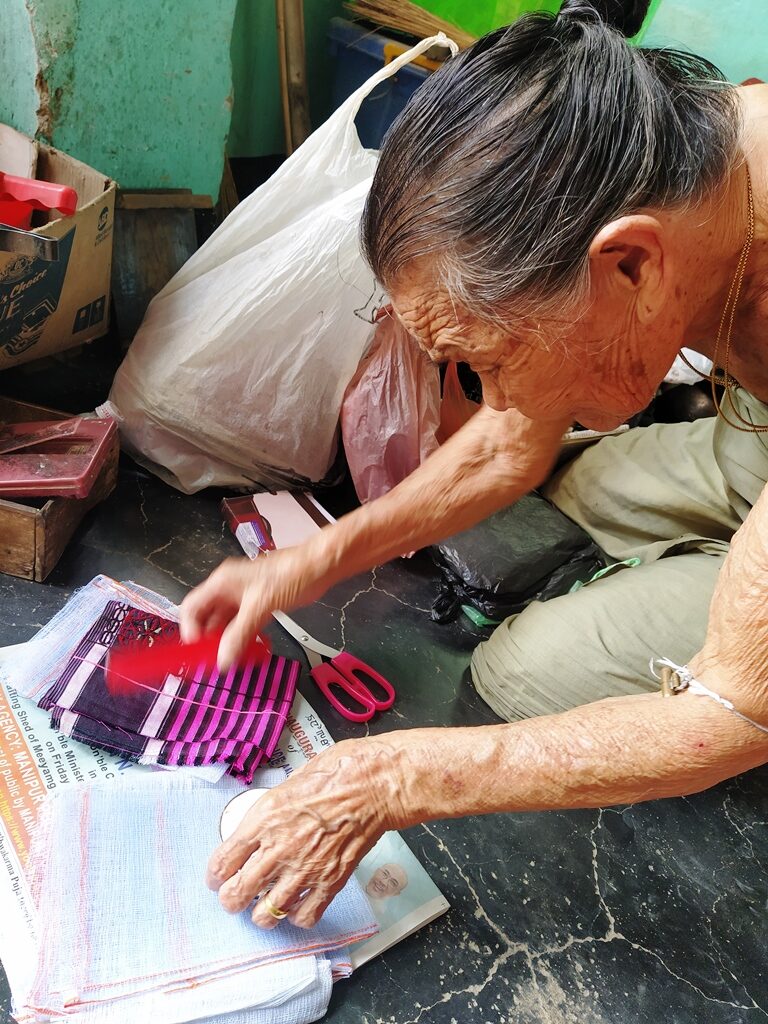The government has given us rice and dal, we are having it daily, but to be frank my appetite is lost. My appetite will only come back only after I get to sit in my market’, she sighed with a laugh
 Mayanglambam Merina
Mayanglambam Merina

“I have been a busy bee since I was 35 years old, my grandmother gave this plot to me, she sold “Salts” then. The Ema-Market is our life, how will we live now?”, explained a middle-aged woman
Life becomes somewhat mucky during this pandemic phase. The sudden announcement of lockdown on 24th March 2020 has given a massive blow to all. The 501-year-old Ema Market, where 5000 women vendors sell perishable and non-perishable items like local seasonal vegetables, fishes and non-perishable items starting from traditional shawls, mosquito nets, handloom bed sheets and other customary and ritual items, went silent due to the pandemic and a sudden stillness came in from 21st March till date.

These three women markets with 4000 licensed women vendors are known to the world for their different departments selling different items. Most of the stalls are traditionally passed down from great grandmothers to their daughters-in-law, or to their granddaughters or daughters-in-law.
For some in the states, the ‘Ema market’ is a place for women’s empowerment, and it is the heart of Manipur. One could glance at this colourful market right from 3 am until 7 pm. Manipur as a state has a colourful group of tribes and locals from different sects celebrating different festivals almost every month. Due to this, the three markets become a heavily crowded place for shopping during the festivals. Customary and ritualistic items for ceremonies like birth, marriage, death, house warming, etc are all available here.
Perishable items like fruits and vegetables are used commonly in all ritual activities. Traditional shawls of various tribes, jewellery mosquito nets and blankets, cane products, knives, spears and spades are also available.
Before the pandemic, mushrooming street vendors flocked into the market from other districts in stuffed auto-rickshaws and, sold their goods from 3 am to 9 am in the morning and from 3 pm till 7 pm in the evening just below the over-bridge of the Ema- Market unlike licensed vendors who sell from 8 a.m till 9 p.m
But now, hired autos and, vans are seen with vegetables like cabbages, cauliflowers, green chillies, chimes etc. The daily episode of policemen chasing them is indeed an iconic scene. Some polythenes with vegetables are thrown on the road by policemen for not maintaining Standard Operating Procedures (SOPs).

The women now wear three-layered dusty masks on their chin, or at times tuck them on their phanek (a local traditional dress that somewhat looks like a wrap-around). Time slots were designated but only a few followed them. Some women now sell their wares on footpaths, some outside big – localities, and, a few do so near community centres or outside their houses.
From March 21st onwards, the sudden announcement of the lockdown of this market has brought a sense of stillness. Things have been difficult since the market closed. Luckily I came across Abok Angoubi, an elegant 93-year-old woman who sells Meitei rituals and customary items at Ema –Market. She agreed to my questions only after selling some items to me. I couldn’t refuse her request. She said, “This Market is supporting more than 5000 households daily without even a penny from the state government. Any woman who sells here will be able to run her home easily. Even me, I started sitting in this market in October 1975, it was directly inherited from my mother in law. Every morning was a hope to earn more. I get to meet my friends also. There were days on which we didn’t sell a thing, but we used to console one another and later end the day with a laugh. Our children used to worry about us, but youngsters never understand the power of this Ema – market.’

The credit goes to Ema-Market for educating and bringing up my children. Old memories play before my blurred eyes, I have lost my appetite now. I miss running halfway way hurriedly and jumping inside an auto for my daily routine at the market.
I never had a full stomach but my energy was high. Gone were the days which I cherished. I just pray that this Corona should go so that I can once again get to see the colours in the Ema –market.’

After wrapping up the mini palm- size ‘pink phanek (for a local female deity my Ema Panthoibi, the goddess of my residence) with the squeezed newspaper she looked at me and said, ‘The government has given us rice and dal, we are having it daily, but to be frank my appetite is lost. My appetite will only come back only after I get to sit in my market’, she sighed with a laugh.’
I spoke to another vibrant woman from Imphal West district, Eche Bilashini, who sells traditional shawls, leng-yan ( long scarfs for Meitei men), gift items, and heavily embroidered phanek from all tribes, She said, “‘Whatsapp and Facebook came to my help in my business, I sold items worth 3-4lakh in recent months.’ But what about those who don’t have a smartphone and aren’t aware of such platforms?”
Eche Tabitha, from Chandel District, feels a big halt in her cane business. She supplies in bulks. “How will I be able to run my family? Earlier I used to make up to Rs 5000/-, and now even getting 2500/- is a big struggle. Don’t ask about the taste, we eat to survive. Districts like Senapati, Bishenpur, Imphal-East and Imphal-West are my regular wholesale buyers. I hope my co-operative won’t die”, she sighed.
A 57-year-old woman selling local knives expressed, “being a single mother is really tough. I bought two handsets with my savings, the simplest one for me and the better one for my son for his online classes.”
Recently, the Chief Minister has distributed loans to a total of 1,269 vendors from different districts to support them in resuming their work. 2928 applications were sent, out of which only 725 women street vendors were identified as per the PIB update.
Moreover, 803 street vendors benefitted from the Pradhan Mantri Street Vendor’s Atma Nirbhar Nidhi – PM SVANidhi scheme and 466 regular licensed vendors were provided assistance under the Pradhan Mantri Mudra Yojana (PMMY) – SHISHU. But when interviewed, some had nothing to say. Licensed vendors seem to feel somewhat neglected.
Talking to some street vendor’s leaders, they shared that the National Hawker Federation came in to give licenses to 2000 women street vendors and hope that proper guideline will also follow post-licensing. But they are still not clear on the distribution of licenses and who has received them and who is yet to be licensed.
It talks about the government extending financial support in the form of loans to street vendors under two different Government schemes a) PM SVANidhi and b) Pradhan Mantri Mudra Yojana (PMMY) – SHISHU in consultation with different banks so that they could start their livelihood afresh. Around about 20,000 vendors from the state would get this loan. Another request was also made to the Union Ministry of Housing and Urban Affairs to allow utilization of funds from the Ministry in hill district headquarters as well.
Questions still linger among those unheard voices as to who was chosen and who were not. The invisible pain and blow of Covid-19 indeed did uproot their lives!!!

(Mayanglambam Merina Leimarenbi is a Manipur based journalist. This article is research supported by Zubaan Publishers-Sasakawa Peace Foundation.)





